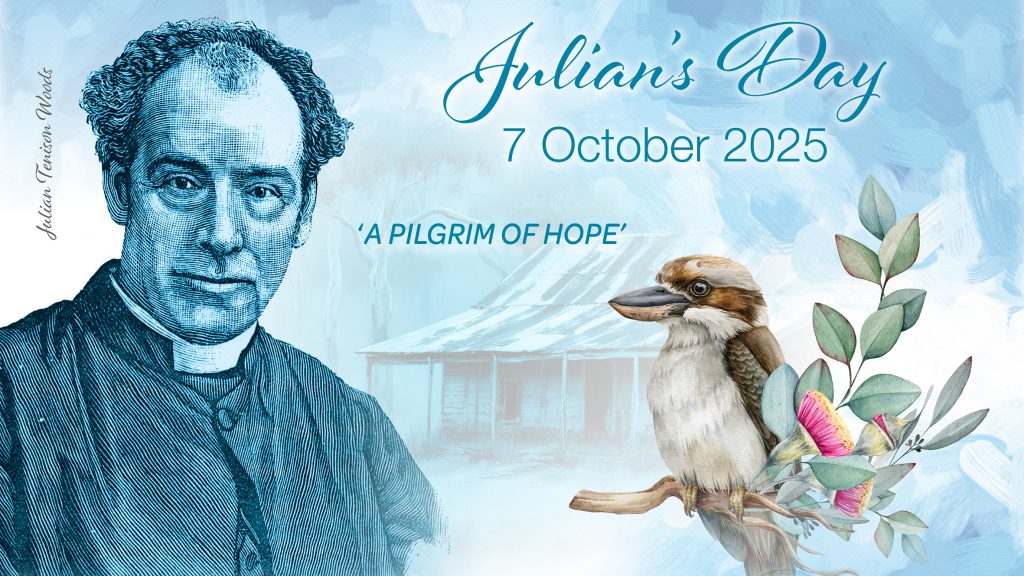
On 7 October, the Sisters of Saint Joseph celebrate the life of our Father Founder, Julian Tenison Woods. In this Jubilee year, we are invited to reflect on how Julian’s journey exemplifies the spirit of being a Pilgrim of Hope.
From his earliest years, Julian was a seeker — drawn to the spiritual, and compelled by a deep desire to serve God. This inner longing led him on many journeys, from London to France, across Australia and into Asia. These travels were not merely geographical; they were spiritual quests that revealed God’s presence in all creation and in his many encounters. Julian’s life teaches us to find joy in nature, humility in receiving help, and courage to begin anew, even when the path ahead is unclear.
As he travelled, Julian remained ever attentive to his surroundings and the beauty of creation which led him to moments of deep contemplation and communion with the Provident God. Like many pilgrims, he took time to record these moments of insight leaving us with a rich treasury of reflections to ponder.
Every rock, every leaf, every insect has something beautiful, nay, wonderful to tell.
Like many pilgrims, Julian experienced the kindness of strangers. After long journeys on horseback, he was welcomed into homes, offered meals, and given shelter. He wrote in 1866, “One had to be entirely dependent on the hospitality of the settlers, and they always made me feel part of the family”. These simple acts of generosity were, to Julian, signs of God’s providence.
He also knew the discomforts of becoming a pilgrim. As he travelled around the parish of Penola (South Australia), he speaks of the annoyance of the mosquitoes, sleeping under the stars with his saddle as his pillow, and enduring difficult weather.
Throughout his many journeys, he opened himself to the gift of new experiences, embracing the unknown with trust and courage. While travelling through Asia, he spoke of the challenges living in different cultural contexts. Writing of his experience to Sarah Woods (his sister-in-law), “I am living in a Japanese house amid Japanese people entirely with no language to speak except Japanese”. (1885)
Julian’s life was far from easy. It was marked by setbacks, illness, rejection, and misunderstanding. Still, he remained faithful to his mission. In a letter to William Archer in 1884, explaining why he was travelling in Asia, he admitted, “Love of science has something to do with it and a life of travelling and adventure, but… I dare say too I had grown rather weary of trying to do good in another way in the face of so much unkindness, hard usage… envy and bitterness”. Despite these trials, Julian never lost sight of the guiding presence of God.
His deep love for the natural world encourages us to care for our planet with hope and reverence. In partnership with Mary MacKillop, Julian helped establish an education system that served those made poor. Through journalism, he gave voice to the voiceless and addressed social injustices with clarity and compassion.
Julian Tenison Woods reminds us that hope is not passive. It is active, daring, and rooted in trust. His life calls us to walk our own pilgrimages with courage, creativity, and compassion. In a world yearning for peace and justice, may we, like Julian, become pilgrims of hope.
Sr Monica Cavanagh
Congregational Leader
